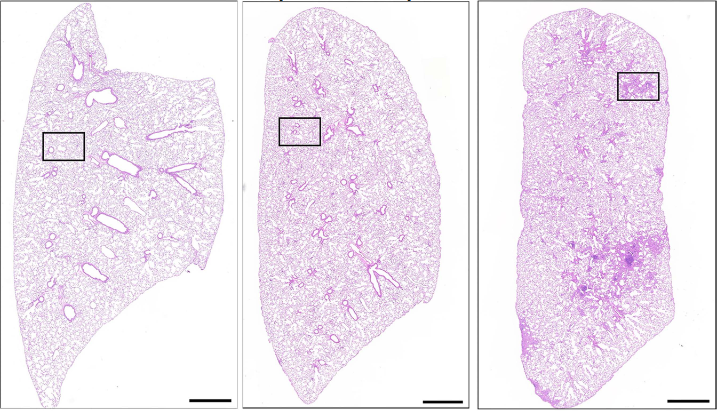Aging of alveolar type 2 cells induced by Lonp1 deficiency exacerbates pulmonary fibrosis
DOI:
https://doi.org/10.17305/bb.2024.10429Keywords:
Idiopathic pulmonary fibrosis (IPF), Lon protease 1 (Lonp1) gene, senescenceAbstract
Idiopathic pulmonary fibrosis (IPF) is a progressive and chronic disease that significantly impacts patient quality of life, and its incidence is on the rise. The pathogenesis of IPF remains poorly understood. Alveolar type 2 (AT2) cells are crucial in the onset and progression of IPF, yet the specific mechanisms involved are not well defined. Lon protease 1 (LONP1), known for its critical roles in various diseases, has an unclear function in IPF. Our research investigated the impact of Lonp1 gene deletion on AT2 cell functionality and its subsequent effect on IPF development. We generated a bleomycin-induced pulmonary fibrosis mouse model with a targeted Lonp1 knockout in AT2 cells and assessed the consequences on AT2 cell function and fibrosis progression. Additionally, we constructed the MLE12 cells with stable Lonp1 knockdown and utilized transcriptome sequencing to identify pathways altered by the Lonp1 knockdown. Our results indicated that mice with AT2 cell-specific Lonp1 knockout exhibited more severe fibrosis compared to controls. These mice exhibited a reduction in AT2 and AT1 cell populations, along with an increase in p53- and p21-positive AT2 cells. Lonp1 knockdown in MLE12 cells led to the upregulation of aging-associated pathways, with fibroblast growth factor 2 (Fgf2) gene emerging as a central gene interconnecting these pathways. Therefore, loss of Lonp1 appears to promote AT2 cell aging and exacerbate bleomycin-induced pulmonary fibrosis. Fgf2 emerges as a pivotal downstream gene associated with cellular senescence. This study uncovers the role of the Lonp1 gene in pulmonary fibrosis, presenting a novel target for investigating the pathological mechanisms and potential therapeutic approaches for IPF.
Citations
Downloads

Downloads
Published
Issue
Section
Categories
License
Copyright (c) 2024 Weiwei Zhu, Chunting Tan, Jie Zhang

This work is licensed under a Creative Commons Attribution 4.0 International License.









